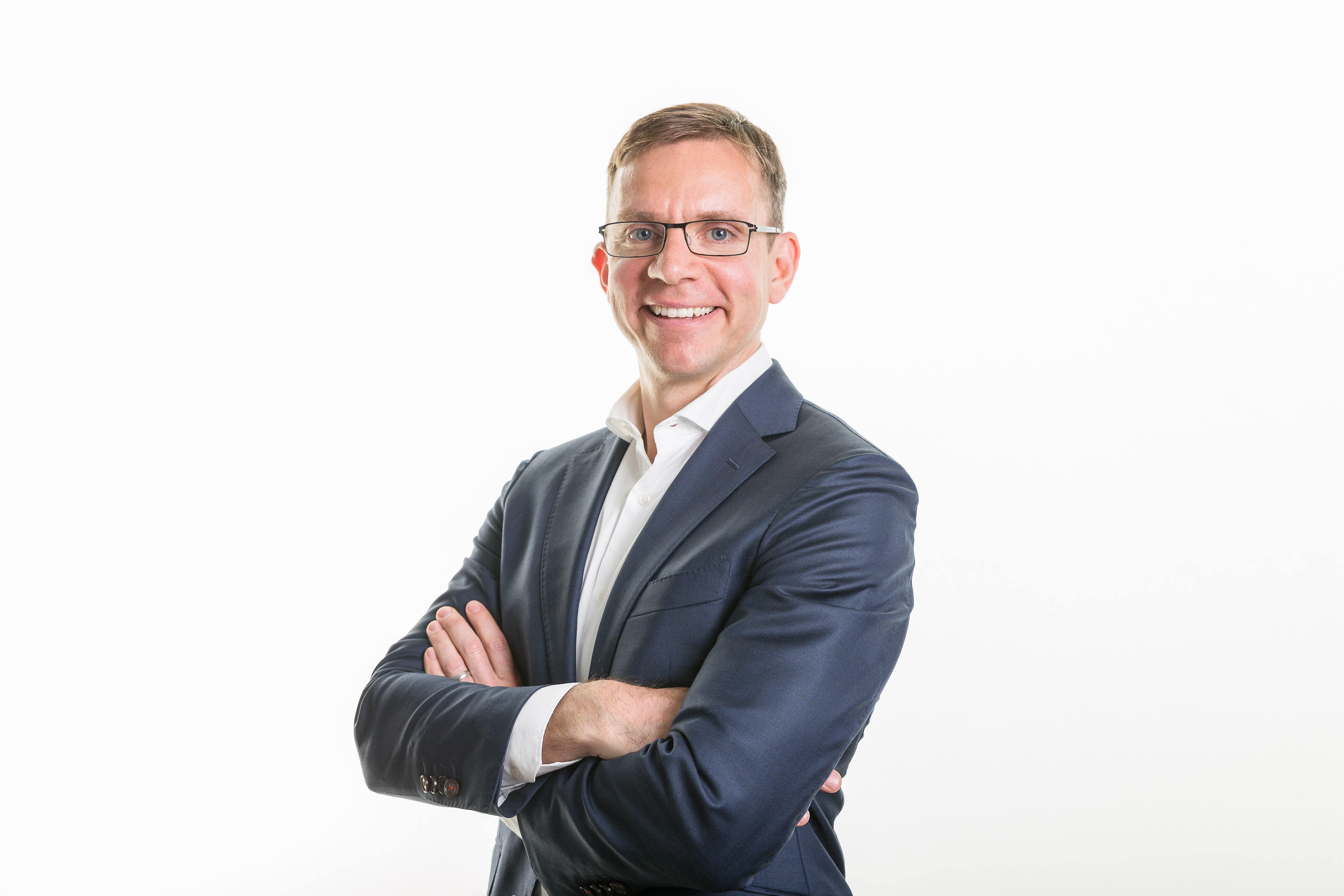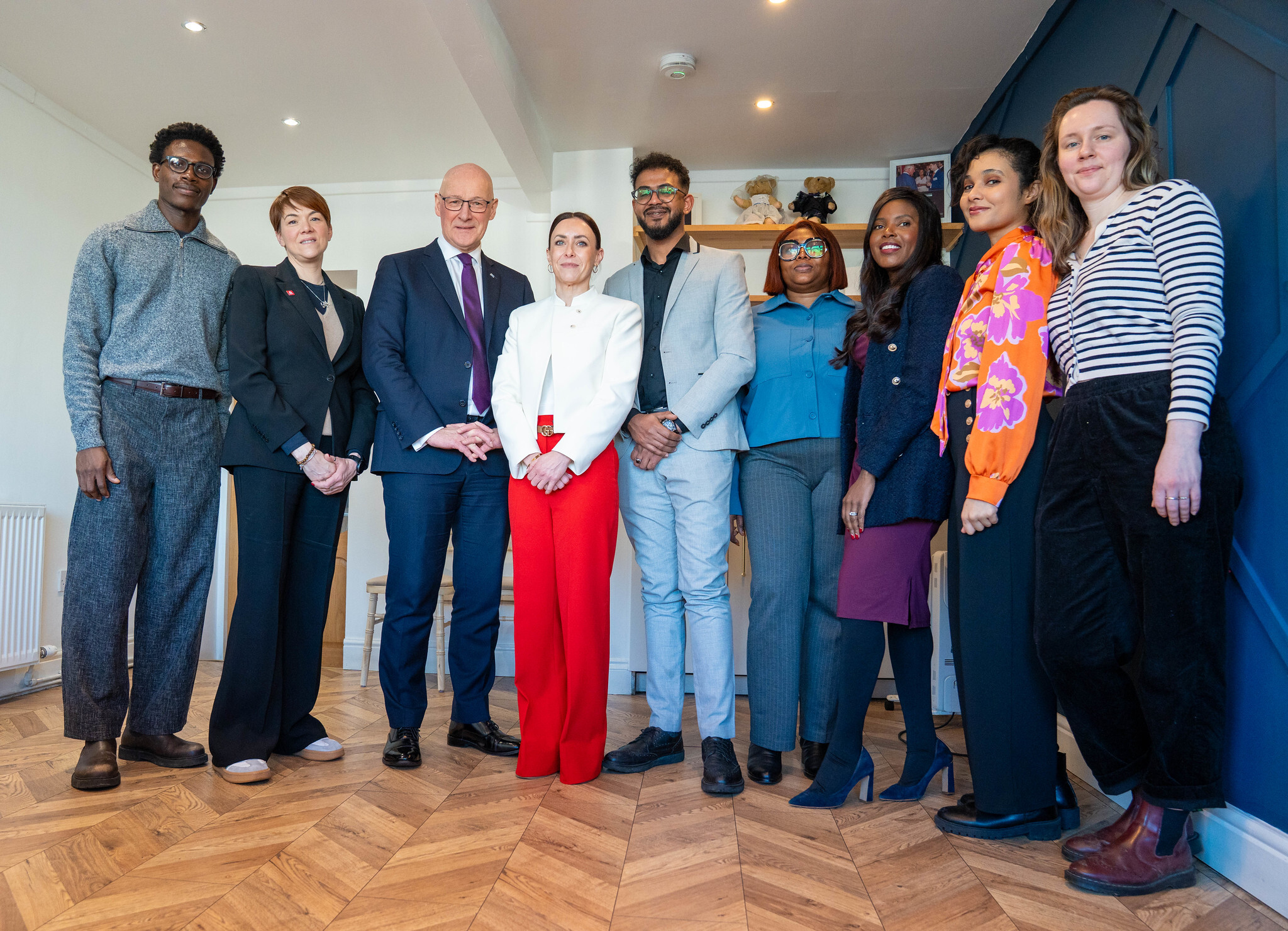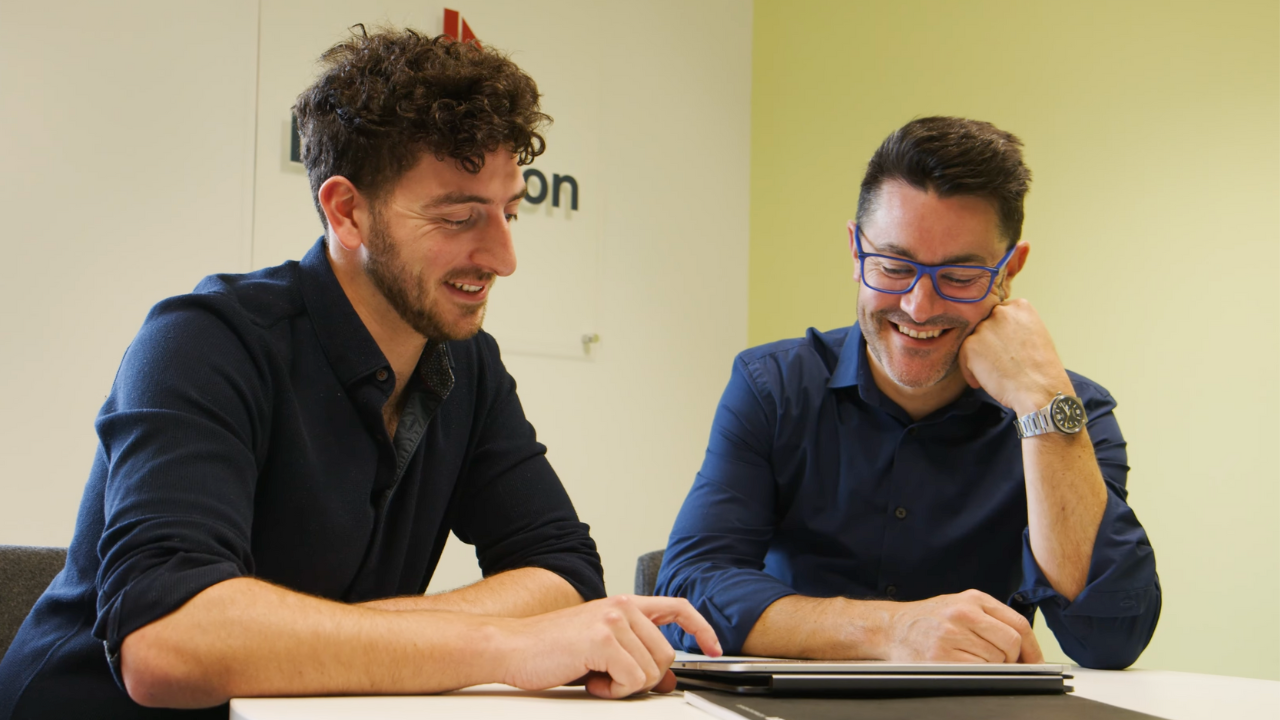With Entrepreneur in Residence Chris Ayres, Chief Customer Officer at OPEX Group
Our latest Entrepreneur in Residence is Chris Ayres, Chief Customer Officer at OPEX Group. Based in Aberdeen, OPEX Group provide AI and Data Science Solutions to help their clients in the energy sector achieve cleaner, more efficient and lower cost operations.
Chris is currently undertaking the Green Leadership for Low Carbon Businesses Catalyst — a 9-month programme led by Opportunity North East and fully funded by the Scottish Government’s North East Economic Recovery and Skills Fund (NEERSF).
Today, Chris shares his lived experience and learnings on working as part of a board during an acquisition process to deliver strategic growth.

I joined OPEX Group in 2017, to help upscale their innovative analytics service offerings that they were deploying to improve reliability across the upstream oil & gas industry. It was my job at the time to develop and implement supporting processes and routine governance to bring about consistent deployment of our analytics-as-a-service and deliver customer-focused engagement — ensuring our teams focused their efforts on what brought our customers the most value.
As OPEX Group grew and we broadened our offering and customer base, I moved into a C-Suite role and held a position on the board. I was working with board members and coming at things from a different, strategic viewpoint which enabled me to take a ‘step up and step out’ and look more holistically at the business. I have had a diverse career as a mechanical engineer and management consultant, working to support leadership teams and various organisations — and this new role allowed me to actually deploy those capabilities.
My role change at OPEX Group came as things started to transform for our organisation. The board began to recognise an opportunity to focus our significant experience on helping to tackle the rapidly emerging challenge, the energy transition and the drive to net zero.
Under the direction of the board and the executive leadership team, things began moving at pace and we created a data-driven solution that could bring emission reduction into the day-to-day decision-making of operational teams in the oil and gas sector.
This was a really transformative moment for us. We gained traction quickly and realised that the market we were addressing was huge — there was real promise and genuine opportunity, outside the current level of our (extremely high) capability. It was just a question of scale now — something that we had to overcome.
This is when we started to have serious conversations about how we could really take advantage of the opportunity that was in front of us. The board came together to look at the opportunities available; growing organically, finding a technical partner, considering private equity, funding or acquisition.
Given the competitive landscape in the digital space, we knew we needed to find a way to access new markets, new customers, more quickly — so we ultimately decided that the best opportunity for us to really capitalise on this opportunity could be was acheived by joining forces with the right partner. We were successfully acquired in December 2021 by ERM, the world’s largest pure play sustainability advisory firm. It’s been a huge (and steep!) learning curve from then to now, and I’m delighted to share my lived experience and insights here to help those considering acquisition as a platform for strategic growth.
To me, this was hugely important. As you go through the ‘day-to-day’ life of business you often focus on the short term, rarely asking yourself the big (or indeed difficult!) questions. When it comes to making life-changing decisions — such as selling your business — it does make you stop and think deeper and consider who you are as an organisation. What do you stand for? What’s your purpose? What defines your ambition and vision?
It really helps to understand what success looks like in 5, 10 or 15 years time for you, your team and the organisation as a whole. For us, it was delivering on a purpose-filled vision about being able to bring emissions reduction into the hands of more and more people around the world.
Getting to grips with some of these bigger questions really will help address my next point…
When it comes to making life-changing decisions — such as selling your business — it does make you stop and think deeper and consider who you are as an organisation.
When you're looking to partner with somebody in such a strategic and definitive way, you need to make sure they're the right fit. I’ve found that unless you can talk about things in the contexts of values, purpose and ambition, then you’ll find it’s a really difficult decision to make.
We really had to explore who we were and what drove us — which is not an entirely straightforward journey but helped us build a framework of who's likely going to be the right fit for us.
Going through a process like this means you’re likely to come across a few natural tensions, as different parties focus on different interests. An acquisition is a long term partnership and it’s important to understand the alignment and take people’s 5-10 year ambitions into consideration as you move through this process. You're building a vehicle for sustainable growth through an acquisition and you need to make sure that it is ‘roadworthy’ and able to last the journey.
Ultimately, as a leadership team and board we don't all agree with each other all of the time. What is amazing is being able to, as a team, get behind whatever the final decision is. Every single member of our leadership team was committed to the business, each other and they worked towards the best outcome together. There was a trusted relationship there, where we all understood that if this was what we needed to get the ‘success’ we were after, then we would all back it and deliver it to the best of our individual abilities.
It is about having that working relationship where you are willing to challenge each other and willing to escalate and articulate risk that not everybody sees, because you've got your own unique perspective you can bring to the table.
It is about having that working relationship where you are willing to challenge each other and willing to escalate and articulate risk that not everybody sees, because you've got your own unique perspective you can bring to the table.
One of the key challenges is making sure that as an organisation you don't ‘run towards the football’ — i.e. delivering this new, exciting partnership — and take your eyes off what’s going on around you. The success and sustainability of any future partnership is going to be underpinned by the success of your products, your service and your team.
For us, this was an important reality check — we realised we had to continue to invest in the business as a board and leadership team. Nothing is ever certain, particularly when you go out to market, so you need to make sure that you invest properly in the future of your business, rather than relying on new sources of funding.
In our case, the search took longer than we thought it would. We were facing new and unprecedented constraints with COVID-19, but also it was so important to us to find the right partner that would accelerate our journey, be good for our people and a partner that shared our vision and purpose.
It’s also so important that both parties bring something to the table. For us, they had access to customers — and for them, we had a particular capability that they could offer to customers to enhance their value proposition. In this way, it was a perfect match – win win.
For me, there is so much strength, personally and also organisationally, in believing in yourself and your decisions.
Despite how clichéd this phrase can be, if you genuinely see an opportunity and you aren’t fooling yourself with that decision then you can and should believe in yourself. That being said, I think having an open mind about what the destination looks like is important as well, because if you're too rigid — for example “it has to be this partner, with this structure” — then it will invariably lead to frustration or disappointment. This kind of situation will demand that you control the things that are uncontrollable, which is a recipe for disaster.
Believing in yourself during this kind of process is also really important — everyone has a role to play and that becomes increasingly clear as you go through it. You can't look back and pinpoint the success of the process on an individual. Ultimately, you’re successful in that process because you all came together as a team, and leveraged individual strengths and capabilities at the right time, in front of the right people.
I think knowing what your strengths and capabilities are in the first instance, and being able to draw on them at the right time, takes a little bit of skill and a little bit of luck. Knowing what you're good at and you're not (and admitting this to those around you) is a really good starting point.
Believing in yourself during this kind of process is also really important — everyone has a role to play and that becomes increasingly clear as you go through it. You can't look back and pinpoint the success of the process on an individual.
Whether you have a board or a trusted network of professional advisors, it’s often important to seek objective views of the decisions you're making. You can often think you have the ‘big picture’ nailed because you’re so immersed in the business, living and breathing the day-to-day, but you need to be able to get that external perspective sometimes to validate and challenge.
Even with a tight team like we have at OPEX Group, there is always the risk that you go into ‘group think’ and are led into believing your decisions are ‘the best thing ever!’. This isn’t necessarily just limited to going through an acquisition process, but you have to be open to external challenges. It’s so important to have that trusted advisory network.
You can often think you have the ‘big picture’ nailed because you’re so immersed in the business, living and breathing the day-to-day, but you need to be able to get that external perspective sometimes to validate and challenge.
-----
Follow Entrepreneurial Scotland on LinkedIn, Twitter and Facebook for the latest news, events and opportunities.
Don’t miss out on exclusive content from business leaders at the forefront of championing and developing an entrepreneurial culture in Scotland, sign up for our next issue of ES:CONNECT.

From real-time dashboards to cost-saving automation - structured internship programmes deliver commercial results. Here's how to make them work.

Young entrepreneurs will be supported to turn their ideas into successful businesses through a new Scottish Government programme.

An internship through the Saltire Scholars Programme helped Donaldson Group create Spec3D, a new 3D visualisation business now used by house builders across the UK.